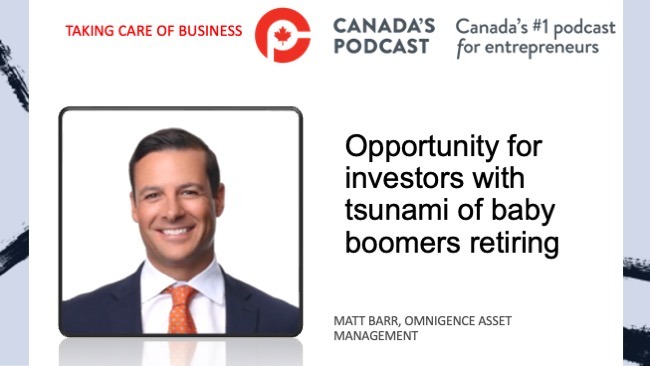Artificial Intelligence has become a major tool today in research. I decided to test it out and asked CHATGPT what are the five major reasons for the failure of a small business. Here’s its response:
Starting a small business can be an exciting and rewarding endeavor, but it’s no secret that many small businesses struggle to survive. Statistics show that approximately 20% of small businesses fail within the first year, and nearly half close their doors by the fifth year. Understanding the most common reasons small businesses fail is critical for entrepreneurs looking to beat the odds. Here are five major reasons small businesses fail and actionable tips to avoid these pitfalls.
1. Lack of Market Demand
One of the most common reasons small businesses fail is a lack of market demand for their product or service. Many entrepreneurs start with a great idea but don’t take the time to validate it in the real world. Without sufficient demand, even the most innovative products are unlikely to generate enough revenue to sustain a business.
How to Avoid This:
- Conduct Thorough Market Research: Before launching, research your target audience to understand their needs and preferences. Surveys, focus groups, and competitor analysis can provide valuable insights.
- Test Your Idea: Start with a minimum viable product (MVP) or a pilot program to gauge interest and collect feedback.
- Adjust as Needed: Be prepared to pivot your offering based on market feedback to better meet customer demands.
2. Poor Financial Management
Inadequate financial planning and mismanagement of funds are significant factors in small business failure. Entrepreneurs often underestimate expenses, overestimate revenues, or fail to maintain a sufficient cash reserve to weather tough times.
How to Avoid This:
- Create a Detailed Budget: Develop a realistic budget that accounts for all expenses, including unexpected costs.
- Monitor Cash Flow: Keep a close eye on cash flow to ensure your business has enough liquidity to cover operational needs.
- Seek Professional Help: If finances aren’t your strong suit, consider hiring an accountant or using accounting software to manage your books.

Photo: Amina Filkins
3. Ineffective Marketing and Branding
A great product won’t sell itself. Many small businesses fail because they don’t invest in effective marketing or lack a clear brand identity. Without proper promotion, potential customers may never learn about your business.
How to Avoid This:
- Develop a Marketing Plan: Outline strategies to reach your target audience, including digital marketing, social media, email campaigns, and local advertising.
- Build a Strong Brand: Create a consistent brand identity that resonates with your audience. This includes your logo, website, messaging, and overall customer experience.
- Leverage Online Tools: Use tools like Google Ads, Facebook Ads, and SEO techniques to improve your online visibility.
4. Failure to Adapt
The business landscape is constantly evolving. Whether it’s changing consumer preferences, new competitors, or technological advancements, failure to adapt can quickly render a business obsolete.
How to Avoid This:
- Stay Informed: Keep up with industry trends, market developments, and competitor activities.
- Embrace Change: Be open to adopting new technologies, revising business strategies, and exploring innovative solutions.
- Listen to Customers: Regularly solicit feedback from your customers to identify areas for improvement and adjust accordingly.

5. Weak Leadership and Team Dynamics
A business’s success often hinges on its leadership and team. Poor decision-making, lack of experience, and inadequate team management can lead to inefficiencies and low morale, ultimately affecting the bottom line.
How to Avoid This:
- Develop Leadership Skills: Invest in leadership training or mentorship programs to strengthen your ability to lead effectively.
- Hire the Right People: Build a team with the skills, experience, and attitude necessary to help your business thrive.
- Foster a Positive Culture: Encourage collaboration, provide regular feedback, and create an environment where employees feel valued.
Conclusion
While starting and running a small business comes with its challenges, understanding the common reasons for failure can help you avoid costly mistakes. By conducting market research, managing finances wisely, investing in marketing, adapting to change, and fostering strong leadership, you can set your business up for long-term success. Remember, preparation and adaptability are key to navigating the ever-changing world of entrepreneurship.
Whether you’re launching a new venture or looking to improve an existing one, these strategies can help you build a resilient business that stands the test of time. With the right approach, your small business can not only survive but thrive in today’s competitive marketplace.

Mario Toneguzzi
Mario Toneguzzi is Managing Editor of Canada’s Podcast. He has more than 40 years of experience as a daily newspaper writer, columnist, and editor. He was named in 2021 as one of the Top 10 Business Journalists in the World by PR News – the only Canadian to make the list. He was also named by RETHINK to its global list of Top Retail Experts 2024.
About Us
Canada’s Podcast is the number one podcast in Canada for entrepreneurs and business owners. Established in 2016, the podcast network has interviewed over 600 Canadian entrepreneurs from coast-to-coast.
With hosts in each province, entrepreneurs have a local and national format to tell their stories, talk about their journey and provide inspiration for anyone starting their entrepreneurial journey and well- established founders.
The commitment to a grass roots approach has built a loyal audience on all our social channels and YouTube – 500,000+ lifetime YouTube views, 200,000 + audio downloads, 35,000 + average monthly social impressions, 10,000 + engaged social followers and 35,000 newsletter subscribers. Canada’s Podcast is proud to provide a local, national and international presence for Canadian entrepreneurs to build their brand and tell their story.





